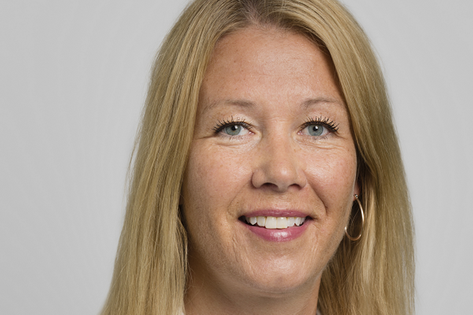Empowering industry to promote physical activity - Interview with Dr. Gisela Nyberg at the Swedish School of Sport and Health Sciences
Dr. Nyberg and her colleagues are organizing a workshop at Uppsala Health Summit on how industry and academic researchers can collaborate around the development of products and services that promote healthy brain functions in children through physical exercise

Dr Gisela Nyberg, GIH
Why is this workshop needed?
The private sector holds a lot of potential when it comes to solutions for helping children and their families adopting more healthy lifestyles. We want to raise awareness around opportunities to develop evidence-based health promoting products and services, which is good for both business and for people. It could be gyms, playgrounds and a range of other products.
We want to show that here is an opportunity for private sector companies to take a leadership role in creating, coordinating and supporting, and sustaining strategies that promote physical activity together with scientists, government agencies and civil society. At GIH, we have initiated such partnerships already and with this workshop at Uppsala Health Summit, we want to share experiences and develop these ideas further together with the workshop participants", says Dr. Gisela Nyberg, GIH.
What is the situation around young people and physical activity? How bad is it really?
The majority of Swedish children and adolescents move too little. National data points to only 22 per cent of girls and 44 per cent of boys reaching the daily recommendation of 60 minutes accumulated physical activity of moderate to vigorous intensity. Boys are generally more active than girls, and activity decreases with increasing age. Most young people spend a lot of time sitting still, on average nine hours per day. It is worrying that socio-economic background is such a decisive factor; children to parents with fewer years of education are less active than those with well-educated parents. This is particularly true for girls", says Gisela Nyberg.
Who is responsible for turning the tide and improving the situation?
There has to be an increased collaboration between different actors in society. Pre-school and school are important arenas to reach all children and young people and promote health equality. There are effective strategies that the school can use to increase physical activity, i.e. through active breaks and movement during lessons. It is also necessary to involve parents. Society can create stimulating environments. This is important to bear in mind when we build schools, housing and outdoor environments", says Nyberg.
Fact Box
Dr. Gisela Nyberg
Dr. Gisela Nyberg has long experience in intervention and implementation research to promote healthy dietary and physical activity habits in children and families. Here is one study she contributed to, which found that despite a conducive environment, overall physical activity is low among children and youth in Sweden. In a new study at the Swedish School of Sport and Health Sciences she will study detailed relationships between physical activity and mental health and cognitive functions in 1000 school children.
Swedish School of Sport and Health Sciences
The Swedish School of Sport and Health Sciences (GIH) was founded in 1813 by Pehr Henrik Ling, making it the oldest University College in the world within its field. GIH offers degree programmes preparing for the teaching profession in Physical Education as well as for careers in Sports Coaching, Sport Management or Preventive Health.
